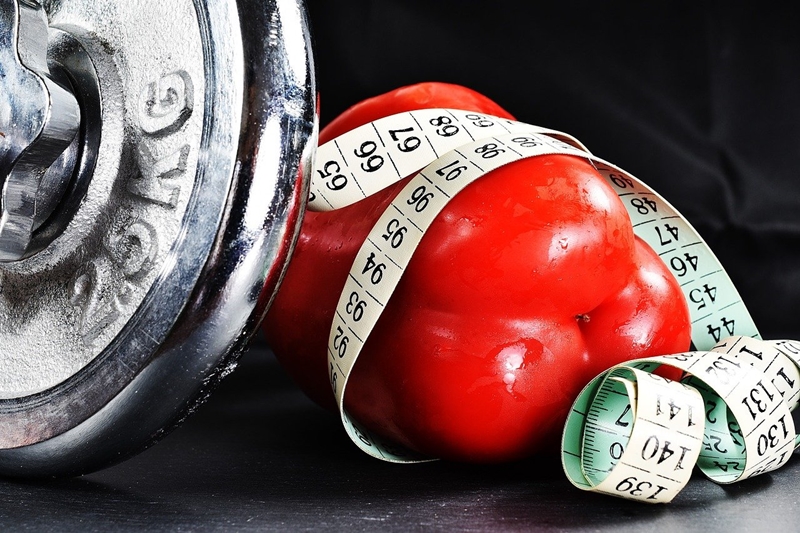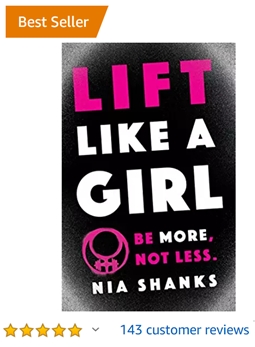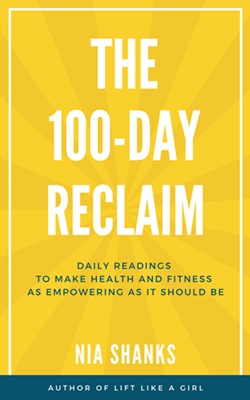
You can listen to this article. Use the player below, download the MP3, or use iTunes.
I enjoy looking through years of workout logs to see the progress I’ve made, the personal records I set, the grueling sets of high-rep squats and deadlifts I’ve endured.
Performance improvement is a critical component of any strength training program if you want to reap results from your efforts. But recently I decided to ponder not just the physical improvements I’ve made over the years, but the mental improvements too.
There’s a stark contrast between the way I viewed food and fitness over a decade ago in my early 20s, and how I view them today in my mid 30s. Not to mention, how I view myself. The improvements, I noticed, were staggering: Food and fitness no longer dominate my life as they once did. And, no, my results haven’t suffered because of it.
FOOD
How I view food now compared to then is perhaps the most distinct change.
Then
My view was dichotomous, with no wiggle room. Certain foods were “good” and others “bad.” Lean meats, fish, egg whites, oats, and veggies were “good,” and so I was “good” when I stuck to those foods. My favorite dessert, regardless of its quantity, was definitely “bad”; I’d be riddled with guilt after eating it. This black-and-white mentality eventually led to disordered eating habits, and later binge eating. It escalated to the point where I battled these self-defeating habits daily.
During that time I dabbled with numerous diets (and felt compelled to give every meal a “healthy makeover”), obsessively counted calories, tracked macros. Each new diet attempt magnified the disordered and binge eating habits.
I saw food as something that had to be earned. Hard workouts were the required currency to eat, and likewise penance for the times I ate something “bad” or binged.
My relationship with food back then was not only unhealthy, but suffocating and demoralizing. Thoughts of food dominated my mind, quite literally all day.
Now
I focus on sustainable habits that allow me to reach, and maintain, my health and fitness goals. Above all, I chose to adopt enjoyable habits I could adhere to long term. I want a lifestyle … not a temporary diet. (Refer to the article The Simple Guide that Shows You How to Eat Healthy.)
That means I follow a few guidelines: eat plenty of protein and fiber, fruits and veggies, and stick to a predominantly plant-based diet. Not only do I enjoy this style of eating, but it’s helped me improve my health too. Specifically, taking my total cholesterol from the high 400s to below 200.
There are no “bad” or “forbidden” foods. Not even guilty-pleasure foods. I enjoy my favorite not-super-healthy foods on occasion, in reasonable quantities (i.e., eating in moderation). They do not have to be “earned” nor must I punish myself with an extra workout for eating them.
And perhaps the greatest result from my current style of eating: I don’t spend more time than necessary thinking about food. I don’t obsess. I don’t panic. I focus on following my chosen guidelines most of the time, because what I do most of the time is what determines the effects.
Most importantly, I’m free. Free from obsessive eating habits.
FITNESS
I started strength training as a young teenager, and instantly fell in love with it. But what started out as an enjoyable activity underwent an ugly transformation once disordered eating took hold of me.
Then
Once firmly in the grip of disordered eating habits, my view on fitness changed for the worse too. All forms of exercise became tools of punishment. Punishment for overeating, of course, but also for “fixing” body parts I didn’t like and a vain attempt to achieve the standards I assumed others would approve of and applaud. (This was a result of allowing other people’s negative comments about my body to affect me.)
Workouts were something I “had” to do to earn the right to eat my favorite foods or punishment to “work off” the calories from a previous binge. Regardless of how exhausted I was, I never allowed myself to have an easy workout, and I could never skip one. Every workout had to be all out; I had to be exhausted by the end. And I had to improve. If I didn’t improve my performance or, worse, regressed, then I’d declare myself a failure.
I was obsessed with making the number on the scale go down, and every workout was about burning as many calories as possible, due to the ongoing fat gain from binge eating.
Now
Strength training is an empowering activity. I love discovering what my body can do, and eagerly trying to do even more. Finishing a workout and saying, “Hell yes, I did that!” is a rewarding experience, and I get to have it multiple times each week.
Here’s a recent example of a modified sumo deadlift when I pulled 255 pounds for 11 reps.
I appreciate what my body can do, and respect its limitations on any given day. My performance can fluctuate on a daily and weekly basis, and ebb and flow with other real-life stuff. When I go through stretches where my performance doesn’t budge, I don’t get bothered by it; it’s part of the journey. I don’t value myself based on a single workout, or even a block of them.
When I was trying to hate my way to a better body in my early 20s, cardio especially was a tool of punishment. Its only purpose was burning calories. Now, I do it regularly to keep my heart and lungs strong, to keep me in shape for hiking, and to promote overall health.
Fitness is also a vital element of my self-care regimen — a stress reliever. Everyone has their own ways of winding down and gaining mental clarity; a tough workout is my personal preference.
And, finally, fitness is fun. Having goals is fun. When I chase performance-based goals — like deadlifting twice my bodyweight for progressively more reps — it’s because I enjoy the challenge. And, most recently, I set some physique-changing goals too, like adding muscle to my thighs and calves. Again, the challenge to achieve those results is motivating. I’m not doing it to “fix” anything or because it’ll make me like myself more: I want something to strive toward. Something I must earn with effort and consistency.
Did I Have to Compromise Results?
Some people will assume I’ve have to compromise my physique or strength goals since food and fitness no longer dominate my life. But I didn’t. In fact, my results are better. I’m stronger than I’ve ever been, leaner, and have more muscle.
That is attributed to the habits I’ve forged. I replaced not-so-great habits (obsessing over food, punishing myself with workouts) with ones that serve me and allow me to live the life I want. I learned how to be flexible with my fitness regimen and work with what I’m given (time constraints, fatigue, real-life stress) on any day.
The contrast in how I viewed food and fitness between then and now is radical and can be summed up like this:
Food and Fitness Then:
- Punishment
- Stress inducer
- Rigid
- Dominated my life
Food and Fitness Now:
- Empowerment
- Stress reliever
- Flexible
- Complements my life
There are countless women who will relate to my “then” experience, and many who are still stuck in a similar tale of their own.
It’s been my mission over the years to prevent women from traveling down a similar path, or at least help them break free from it. If you currently use food and fitness as punishment, it feels like you’re constantly fighting against your body, or food and fitness control your life, know that it can get better.
I wrote two books filled with every helpful detail I could possibly think of, and the feedback over the years has been remarkable:
Lift Like a Girl: Be More, Not Less
Click here to get your copy on Amazon. (Paid link.)
The 100-Day Reclaim: Daily Readings to Make Health and Fitness as Empowering as It Should Be
Click here to get your copy on Amazon. (Paid link.)
Most recently I opened the Lift Like a Girl monthly coaching group for women who want efficient, performance-based workouts that allow them to focus on the incredible things their bodies can do, and discover why that is the ultimate way to get the results they desire. (You can get the first 7 days for free.)
If you want a better “now,” or you’re just beginning your strength training journey and want the best possible start, then begin by making (or adopting) the necessary and empowering changes today.
Food and fitness must help you become the best version of yourself. It must be a sustainable lifestyle you enjoy. Do what you must to make that happen.
The post Food and Fitness No Longer Dominate My Life appeared first on Nia Shanks.
Food and Fitness No Longer Dominate My Life posted first on niashanks.com


No comments:
Post a Comment